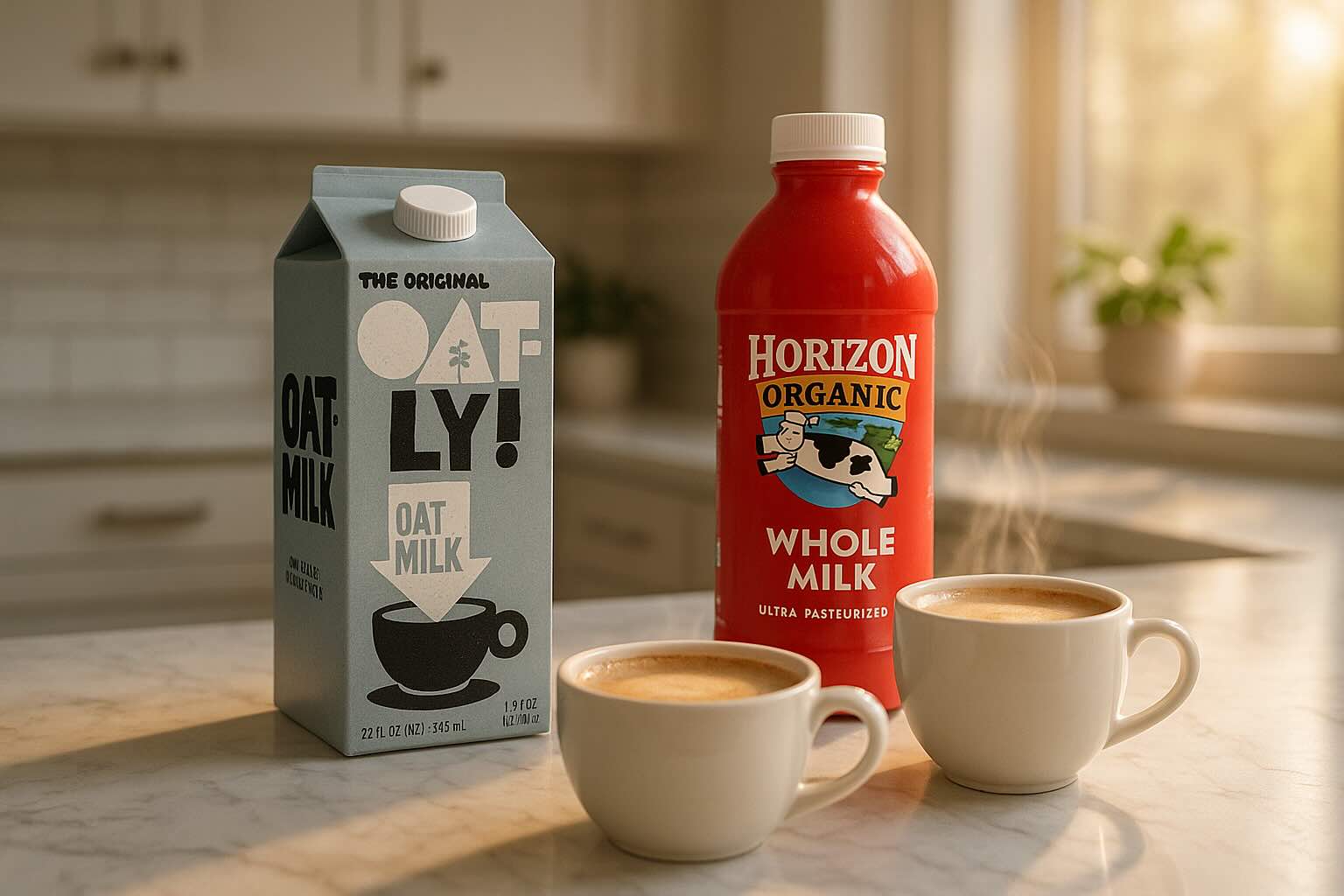
From lattes to cereal bowls, milk is part of daily routines. With plant-based options like oat milk gaining popularity, many people see them as cleaner, healthier alternatives to traditional dairy. They feel lighter, trendy, and often marketed as better for your body.
But here’s the part most people don’t realize: both dairy and oat milk have unique impacts on your teeth. Lactose in dairy and added sugars in oat milk can quietly wear down enamel, fuel cavities, and change how your smile ages. These effects don’t happen overnight. Instead, they build slowly until sensitivity, stains, or cavities appear.
Dairy milk contains lactose—a natural sugar. While not as harmful as refined sugar, lactose still feeds bacteria that produce acid, putting enamel at risk.
The result?
📊 One cup of dairy milk contains around 12 grams of natural sugar.
Many oat milk brands are fortified, flavored, or sweetened—meaning higher sugar content. Even “unsweetened” versions often have natural starches broken down into sugar during processing. Paired with slightly higher acidity, oat milk can soften enamel more quickly than dairy.
Because enamel loss is painless at first, most people don’t notice until they develop:
📊 A single cup of oat milk can range from 7–19 grams of sugar, depending on the brand.
Because dairy is natural and oat milk feels plant-based, people underestimate their impact. Whether in a daily latte or poured over cereal, both expose teeth to sugars that quietly wear enamel down if not managed properly.
Dairy and oat milk don’t feel dangerous in the moment—but their effects build silently. Over time, both can fuel cavities, erode enamel, and dull your smile if consumed without balance. With simple swaps, you can enjoy your favorite lattes or smoothies while keeping your teeth stronger, brighter, and healthier.
Is oat milk worse than dairy milk for teeth?
Often yes—oat milk usually has higher sugar content and more acidity.
Does dairy protect teeth with calcium?
Yes. Dairy provides calcium and vitamin D, which strengthen teeth—but the natural sugar (lactose) can still feed bacteria.
Is unsweetened oat milk safe?
Safer than sweetened versions, but still contains natural sugars from oats.
Does sipping milk before bed hurt teeth?
Yes. Drinking milk and falling asleep without brushing exposes teeth to sugars overnight.
Can rinsing with water after milk really help?
Absolutely. It helps wash away sugars and acids before they linger.
At KYT Dental Services, we see the hidden effects of everyday habits all the time. Patients are often surprised to learn that even something as simple as their morning coffee with milk—whether dairy or oat—was quietly affecting their enamel.
Our approach goes beyond fixing cavities. We anticipate risks—strengthening enamel, guiding patients toward safer lifestyle habits, and offering whitening or protective treatments so their smiles stay bright and healthy.
✨ Because even your choice of milk should fuel your body—not compromise your smile.





